February 9, 2015 •
FEC Hearing Concerning McCutcheon Decision Scheduled for Wednesday
On February 11, the Federal Election Commission (FEC) will hold a public hearing regarding proposed rules in response to the U.S. Supreme Court decision in McCutcheon v. FEC. More than 30 witnesses have been scheduled to testify, including James Bopp, […]
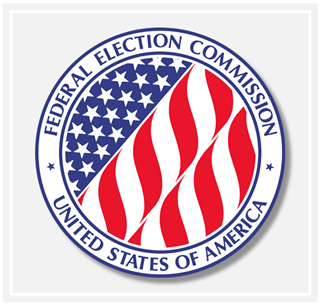 On February 11, the Federal Election Commission (FEC) will hold a public hearing regarding proposed rules in response to the U.S. Supreme Court decision in McCutcheon v. FEC.
On February 11, the Federal Election Commission (FEC) will hold a public hearing regarding proposed rules in response to the U.S. Supreme Court decision in McCutcheon v. FEC.
More than 30 witnesses have been scheduled to testify, including James Bopp, Jr. and Dan Backer, counsels for the McCutcheon case, and Shaun McCutcheon himself. A complete list of scheduled witnesses is available here.
The hearing, scheduled to begin at 8:15 a.m., is expected to last until at least 4:00 p.m.
The Maine Commission on Governmental Ethics and Election Practices will no longer enforce the yearly aggregate contribution limit applicable to individuals and entities contained in Maine Revised Statutes section 1015(3). In a policy statement issued June 4, 2014, the commission […]
 The Maine Commission on Governmental Ethics and Election Practices will no longer enforce the yearly aggregate contribution limit applicable to individuals and entities contained in Maine Revised Statutes section 1015(3). In a policy statement issued June 4, 2014, the commission cited recent U.S. Supreme Court decision McCutcheon v. FEC as authority for its determination.
The Maine Commission on Governmental Ethics and Election Practices will no longer enforce the yearly aggregate contribution limit applicable to individuals and entities contained in Maine Revised Statutes section 1015(3). In a policy statement issued June 4, 2014, the commission cited recent U.S. Supreme Court decision McCutcheon v. FEC as authority for its determination.
The commission stated it will no longer enforce the $25,000 aggregate limit “unless and until it receives further guidance from the Maine Legislature or a court of competent jurisdiction.”
The policy statement also noted the commission’s intention to study the issues and perhaps propose legislation during the next state legislative session.
June 2, 2014 •
MA Will Continue to Enforce Aggregate Contribution Limits to Political Party Committees
Today, the Massachusetts Office of Campaign and Political Finance (OCPF) announced it will continue to enforce the $5,000 aggregate limit an individual may contribute to political party committees during a calendar year. In response to U.S. Supreme Court’s decision of […]
 Today, the Massachusetts Office of Campaign and Political Finance (OCPF) announced it will continue to enforce the $5,000 aggregate limit an individual may contribute to political party committees during a calendar year.
Today, the Massachusetts Office of Campaign and Political Finance (OCPF) announced it will continue to enforce the $5,000 aggregate limit an individual may contribute to political party committees during a calendar year.
In response to U.S. Supreme Court’s decision of McCutcheon v. Federal Election Commission, in which the Court found aggregate limits on campaign contributions unconstitutional, the OCPF had previously announced it would no longer enforce the state’s aggregate limits for the amount an individual could contribute to candidates. At the time, the OCPF stated it would review the decision more closely before deciding whether the $5,000 aggregate contribution limit to party committees could remain standing.
In affirming that limit today, the OCPF “determined that, because the federal statutory provisions that were analyzed in McCutcheon differ substantially from the law in Massachusetts, this office will continue to enforce the $5,000 aggregate limit.”
The State Elections Enforcement Commission has announced it will no longer enforce the state’s aggregate contribution limit after the U.S. Supreme Court’s ruling in McCutcheon v. FEC. At its May 14 meeting, the Commission determined the McCutcheon decision called into […]

The State Elections Enforcement Commission has announced it will no longer enforce the state’s aggregate contribution limit after the U.S. Supreme Court’s ruling in McCutcheon v. FEC. At its May 14 meeting, the Commission determined the McCutcheon decision called into question the enforceability of the aggregate limits and stated it will not enforce the limits absent further direction from the General Assembly or a court of competent jurisdiction. The Commission made clear, however, the base contribution limits remain in full force and effect.
The full text of the Commission’s opinion is available here.
Today U.S. Sen. Patrick Leahy announced the Senate Judiciary Committee will hold a hearing related to campaign finance next month. On June 3, the full committee will focus on Senate Joint Resolution 19, a constitutional amendment granting Congress and the […]
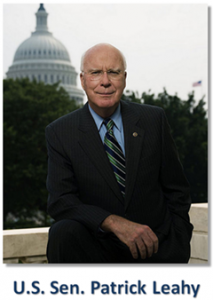
Today U.S. Sen. Patrick Leahy announced the Senate Judiciary Committee will hold a hearing related to campaign finance next month.
On June 3, the full committee will focus on Senate Joint Resolution 19, a constitutional amendment granting Congress and the states power to regulate money in political elections.
Leahy argues in his press release, “The hearing comes on the heels of the Court’s McCutcheon v. Federal Election Commission decision, in which five justices reversed long-standing precedent and declared aggregate limits on campaign contributions in elections to be unconstitutional in violation of the First Amendment. Coupled with the destructive Citizens United decision of 2010, … Congress must respond.”
SJR 19 was introduced by Sen. Tom Udall and has 40 cosponsors.
April 30, 2014 •
Wednesday Government Relations News
Lobbying “Lobbying World” in The Hill. “MasterCard lobbying on digital currency bitcoin” by Julian Hattem in The Hill. Campaign Finance Live coverage: “Dollars and Sense: How Undisclosed Money and Post-McCutcheon Campaign Finance Will Affect 2014 and Beyond” on the Senate […]

Lobbying
“Lobbying World” in The Hill.
“MasterCard lobbying on digital currency bitcoin” by Julian Hattem in The Hill.
Campaign Finance
Live coverage: “Dollars and Sense: How Undisclosed Money and Post-McCutcheon Campaign Finance Will Affect 2014 and Beyond” on the Senate Committee on Rules and Administration web page.
“Senate to vote on campaign finance” by Burgess Everett in Politico.
“Can Congress Fix the McCutcheon Ruling?” by Eliza Newlin Carney in Roll Call.
“Dark Money Spending Three Times More Than at Same Time in 2012 Cycle, CRP Testifies” on the OpenSecrets blog.
“OSC Hits Feds on Both Sides of the Aisle With Hatch Act Violations” by Charles S. Clark in Government Executive.
Maine: “Group in favor of unlimited campaign donations warns Maine” by Steve Mistler in the Portland Press Herald.
North Carolina: “90 percent of all ads run in NC-Senate race have been funded by outside groups. 90 percent!” by Matea Gold in The Washington Post.
Government Tech and Social Media
“Survey Suggests Young People Unengaged With Politics and Voting, Engaged with Social Media” by Miranda Neubauer in TechPresident.
April 28, 2014 •
Federal Court in NY Strikes Down Aggregate Limits
The U.S. District Court for the Southern District of New York struck down a campaign finance law limiting contributions to super PACs. Sections 14-114(8) and 14-126 of the New York Election Law impose an annual aggregate contribution limit of $150,000 […]
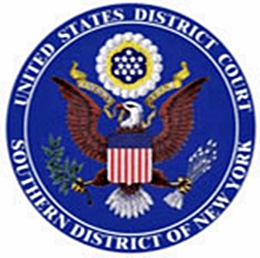
The U.S. District Court for the Southern District of New York struck down a campaign finance law limiting contributions to super PACs. Sections 14-114(8) and 14-126 of the New York Election Law impose an annual aggregate contribution limit of $150,000 per contributor. Plaintiff New York Progress and Protection PAC challenged the aggregate contribution limits on First Amendment grounds.
The committee, although ruled by the court to be an independent expenditure committee, was formed to support the candidacy of Republican Joseph Lhota, the unsuccessful New York City mayoral candidate in 2013.
Judge Paul A. Crotty, citing the precedent established in Citizens United and McCutcheon, enjoined New York’s aggregate contribution limit as applied to independent expenditures.
In light of the United States Supreme Court ruling in McCutcheon v. FEC, the Los Angeles Ethics Commission announced it would no longer enforce the aggregate limits on contributions to city and school board candidates. Limits on contributions to individual […]

In light of the United States Supreme Court ruling in McCutcheon v. FEC, the Los Angeles Ethics Commission announced it would no longer enforce the aggregate limits on contributions to city and school board candidates.
Limits on contributions to individual candidates remain in place.
Photo of the Los Angeles skyline by Nserrano on Wikimedia Commons.
On April 16, the Rhode Island Board of Elections voted to support the creation of legislation eliminating aggregate political contribution limits. The vote was in reaction to McCutcheon v. Federal Election Commission, the April 2 U.S. Supreme Court decision ruling […]
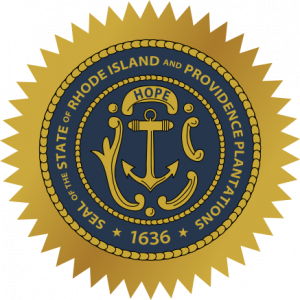
On April 16, the Rhode Island Board of Elections voted to support the creation of legislation eliminating aggregate political contribution limits. The vote was in reaction to McCutcheon v. Federal Election Commission, the April 2 U.S. Supreme Court decision ruling aggregate contribution limits unconstitutional.
State law currently prohibits an individual from making contributions of more than $10,000 in the aggregate to more than one candidate, political action committee (PAC), or political party committee or to a combination of candidates, PACs, and political party committees within a calendar year.
According to the Providence Journal, Raymond A. Marcaccio, the board’s lawyer, told the board, “My observation is that [the state law limiting aggregate contributions] will be subject to a constitutional challenge so we should support legislation that would seek [its] repeal.”
The attorney for the eponymous plaintiff in McCutcheon v. Federal Election Commission (FEC) has filed another challenge against the nation’s campaign finance regulations only two weeks after the U.S. Supreme Court’s historic decision ruling aggregate contribution limits unconstitutional. Stop Reckless […]

The attorney for the eponymous plaintiff in McCutcheon v. Federal Election Commission (FEC) has filed another challenge against the nation’s campaign finance regulations only two weeks after the U.S. Supreme Court’s historic decision ruling aggregate contribution limits unconstitutional.
Stop Reckless Economic Instability Caused by Democrats (STOP REID) v. Federal Election Commission was filed on April 14 in the U.S. District Court for the Eastern District of Virginia by Dan Backer of DB Capitol Strategies. STOP REID is a nonconnected political committee registered with the FEC. On the FEC webpage, Backer is listed as the treasurer of the committee.
This suit was brought because federal law currently has different contribution limits based on the classification of a political committee. For instance, the law allows certain political committees existing for more than six months, with other qualifications, to contribute up to $10,000 per candidate while newly formed political committees existing for less than six months are only permitted to contribute a maximum of $5,200 per candidate. The complaint argues the differing direct contribution limits for political committees to candidates violate the First Amendment rights of freedom of association and speech for committees and their members.
April 14, 2014 •
Proposed U.S. Legislation Would Require 48 Hour Disclosure of Contributions of More Than $1,000
U.S. Sen. Angus King and Rep. Beto O’Rourke have introduced legislation requiring all political committees to disclose contributions of more than $1,000 within 48 hours. House Resolution 4397 and Senate Bill 2207, which were introduced on April 3, and House […]
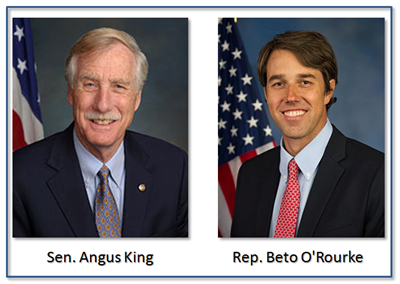 U.S. Sen. Angus King and Rep. Beto O’Rourke have introduced legislation requiring all political committees to disclose contributions of more than $1,000 within 48 hours.
U.S. Sen. Angus King and Rep. Beto O’Rourke have introduced legislation requiring all political committees to disclose contributions of more than $1,000 within 48 hours.
House Resolution 4397 and Senate Bill 2207, which were introduced on April 3, and House Resolution 4442, which was introduced on April 9, mandate the same threshold and disclosure requirements. The bills also apply the 48 hour reporting requirement to transfers of funds from joint fundraising committees.
King, in his weekly YouTube address, made clear this legislation is in reaction to the April 2 U.S. Supreme Court decision in McCutcheon v. Federal Election Commission, which found aggregate contribution limits unconstitutional.
April 3, 2014 •
Thursday News Roundup
Lobbying New York: “Lobbying in New York hit $210 million in 2013–3rd highest total ever” by Ken Lovett in the New York Daily News. McCutcheon v. FEC “Supreme Court strikes down limits on overall federal campaign donations” by Robert Barnes […]

Lobbying
New York: “Lobbying in New York hit $210 million in 2013–3rd highest total ever” by Ken Lovett in the New York Daily News.
McCutcheon v. FEC
“Supreme Court strikes down limits on overall federal campaign donations” by Robert Barnes in The Washington Post.
“Excerpts of high court campaign finance opinions” by The Associated Press in The Washington Post.
“State Impact of the Supreme Court’s Campaign Donations Ruling” by Ryan Murphy and Aman Batheja in Governing.
“Court kills limits on campaign cash” by Benjamin Goad in The Hill.
“Lobbyists groan as fundraising cap falls” by Kevin Bogardus in The Hill.
“Campaign Finance Ruling Winners: The Political Pros” by Frank James on NPR.
“After campaign finance ruling, battle for Congress likely to heat up” by Lisa Mascaro and Michael A. Memoli in the Los Angeles Times.
“Democrats bash SCOTUS ruling” by Seung Min Kim in Politico.
“Supreme Court Decision Puts Members of Congress at Risk” opinion piece by Kent Cooper in Politico.
Rhode Island: “R.I. reaction to Supreme Court’s campaign-finance ruling divided along party lines” by Thomas J. Morgan in The Providence Journal.
Campaign Finance
Delaware: “Democrats plan campaign finance reform bills” by Jonathan Starkey in The News Journal.
April 3, 2014 •
Puerto Rico Maintains Aggregate Limits Despite McCutcheon
On April 3, the Puerto Rico Office of the Electoral Comptroller issued an informational newsletter in light of the U.S. Supreme Court ruling in McCutcheon v. FEC. In McCutcheon, the Court held federal aggregate campaign contribution limits unconstitutional on First […]
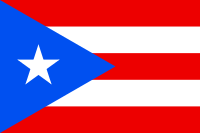
On April 3, the Puerto Rico Office of the Electoral Comptroller issued an informational newsletter in light of the U.S. Supreme Court ruling in McCutcheon v. FEC. In McCutcheon, the Court held federal aggregate campaign contribution limits unconstitutional on First Amendment grounds, as they do not further the permissible government interest in preventing corruption or the appearance of corruption.
While the Court referenced similar aggregate limits in other states and jurisdictions, it did not go so far as to declare them unconstitutional. Therefore, the office is not taking any immediate action with regard to the Puerto Rico aggregate campaign finance limits established in 2011. It will request an opinion from the Puerto Rico Secretary of Justice to determine how the Court’s decision relates to Puerto Rico law.
The office will issue new informational bulletins as further developments arise.
Today, the Massachusetts Office of Campaign and Political Finance (OCPF) announced it will no longer enforce the state’s aggregate political contribution limit for the amount an individual may contribute to candidates. The law, G.L. §55-7A(a)(5), limits the aggregate amount an […]

Today, the Massachusetts Office of Campaign and Political Finance (OCPF) announced it will no longer enforce the state’s aggregate political contribution limit for the amount an individual may contribute to candidates.
The law, G.L. §55-7A(a)(5), limits the aggregate amount an individual can contribute to all candidates to $12,500. The OCPF made its decision based on today’s U.S. Supreme Court’s decision, McCutcheon vs. Federal Election Commission, which found aggregate limits on federal campaign contributions are an unconstitutional violation of the First Amendment’s guarantee of political expression and association.
However, the OCPF is going to review the decision more closely before deciding whether the $5,000 aggregate limit on contributions by individuals to party committees can remain standing. On its webpage, the OCPF stated, “The statutory provisions at the federal level that were analyzed by the Court in McCutcheon differ substantially from the law in Massachusetts, and a determination on the applicability of the ruling in this area will be made after careful review.”
State and Federal Communications, Inc. provides research and consulting services for government relations professionals on lobbying laws, procurement lobbying laws, political contribution laws in the United States and Canada. Learn more by visiting stateandfed.com.

